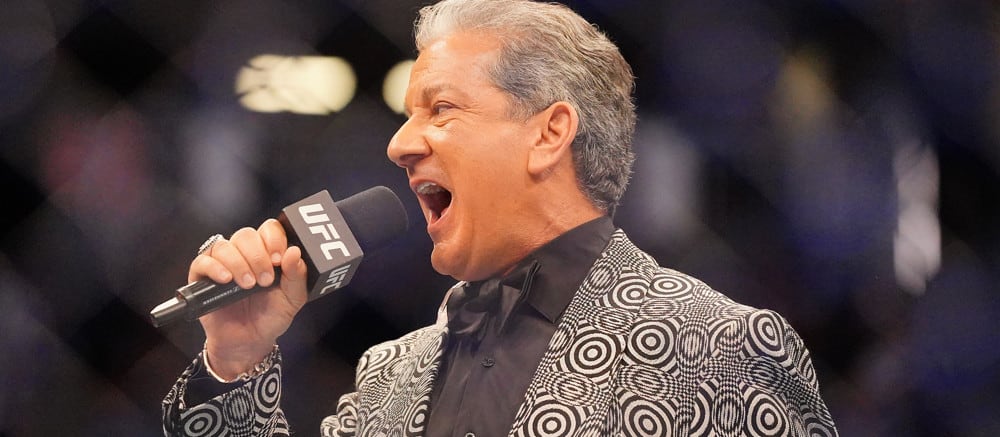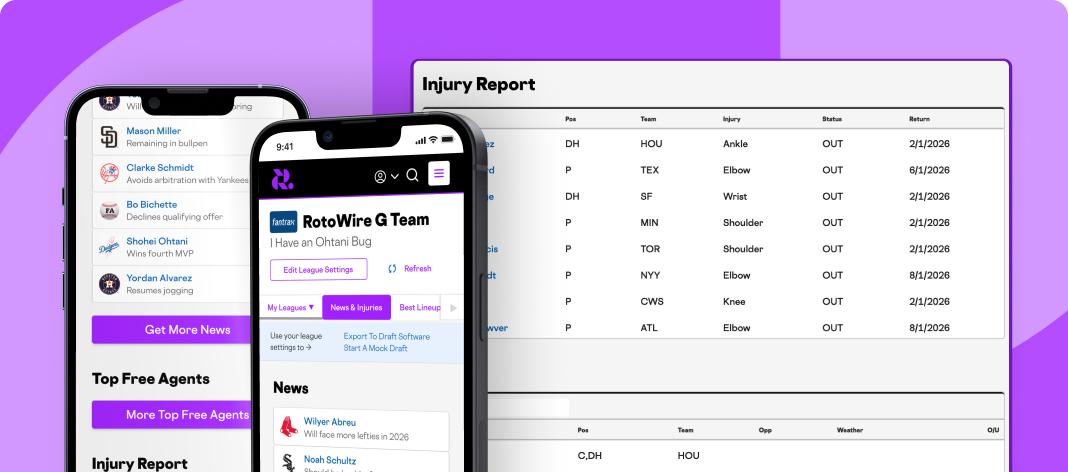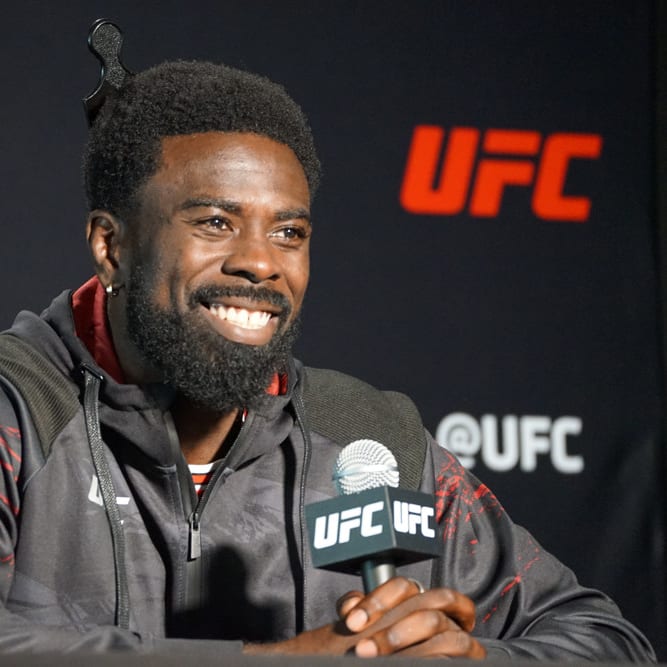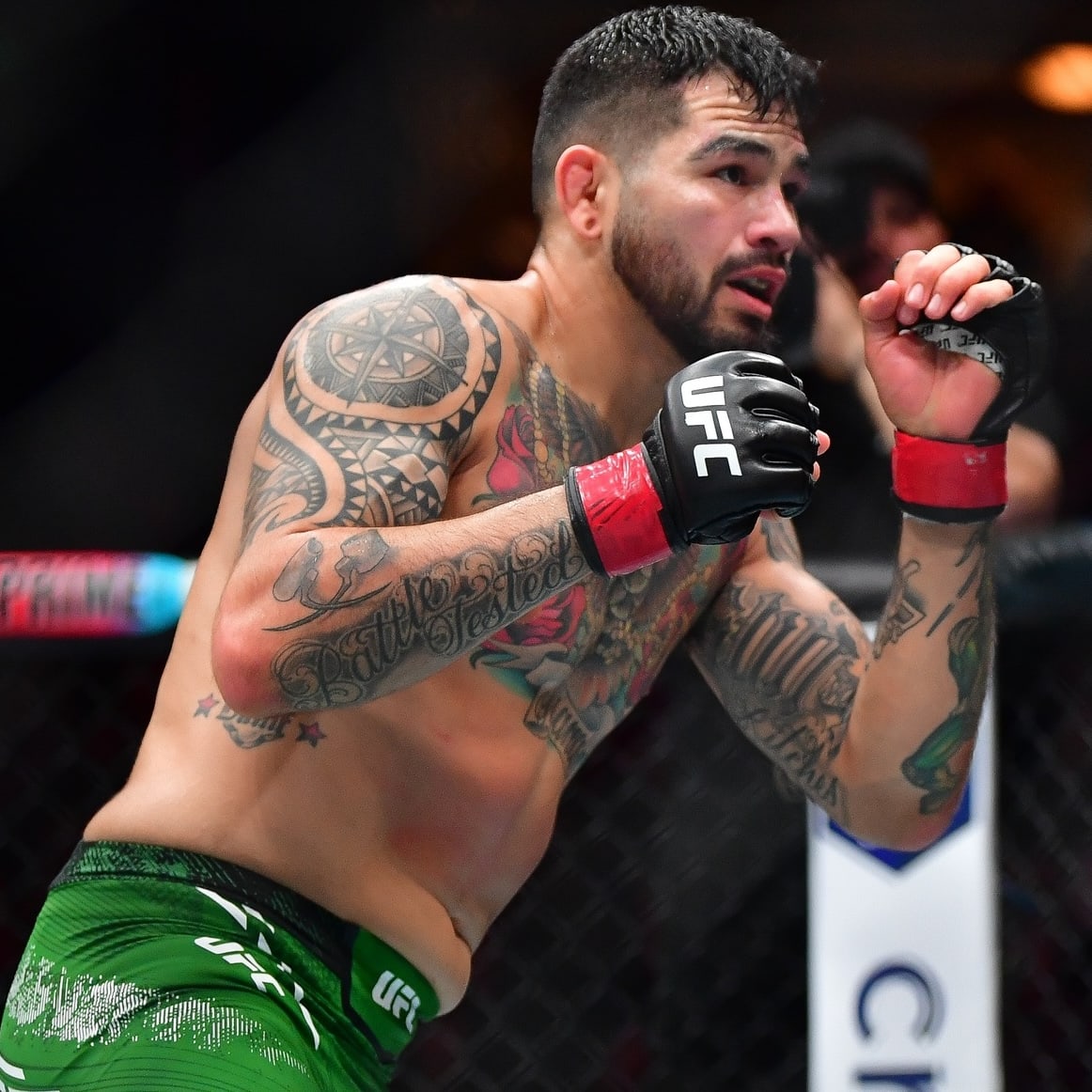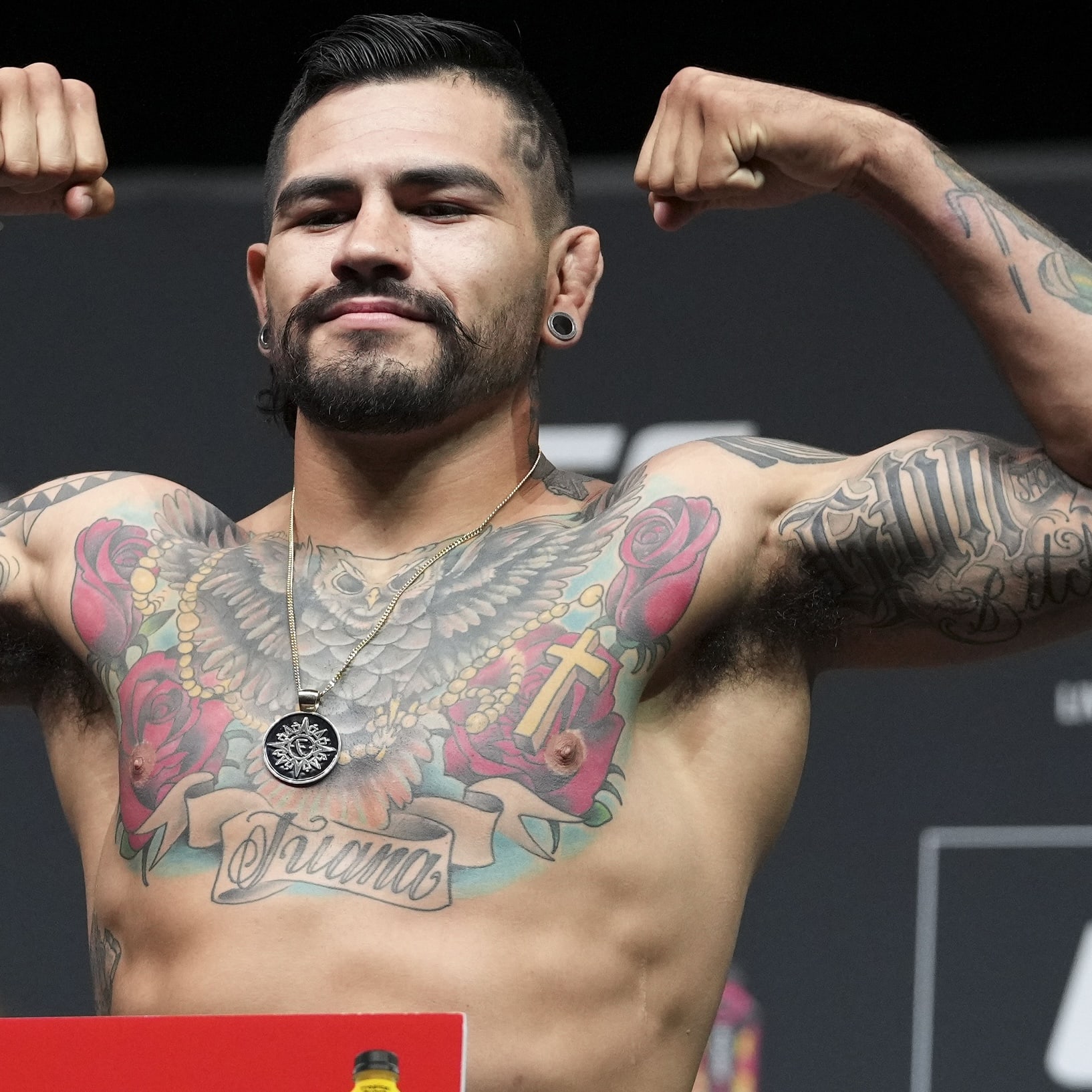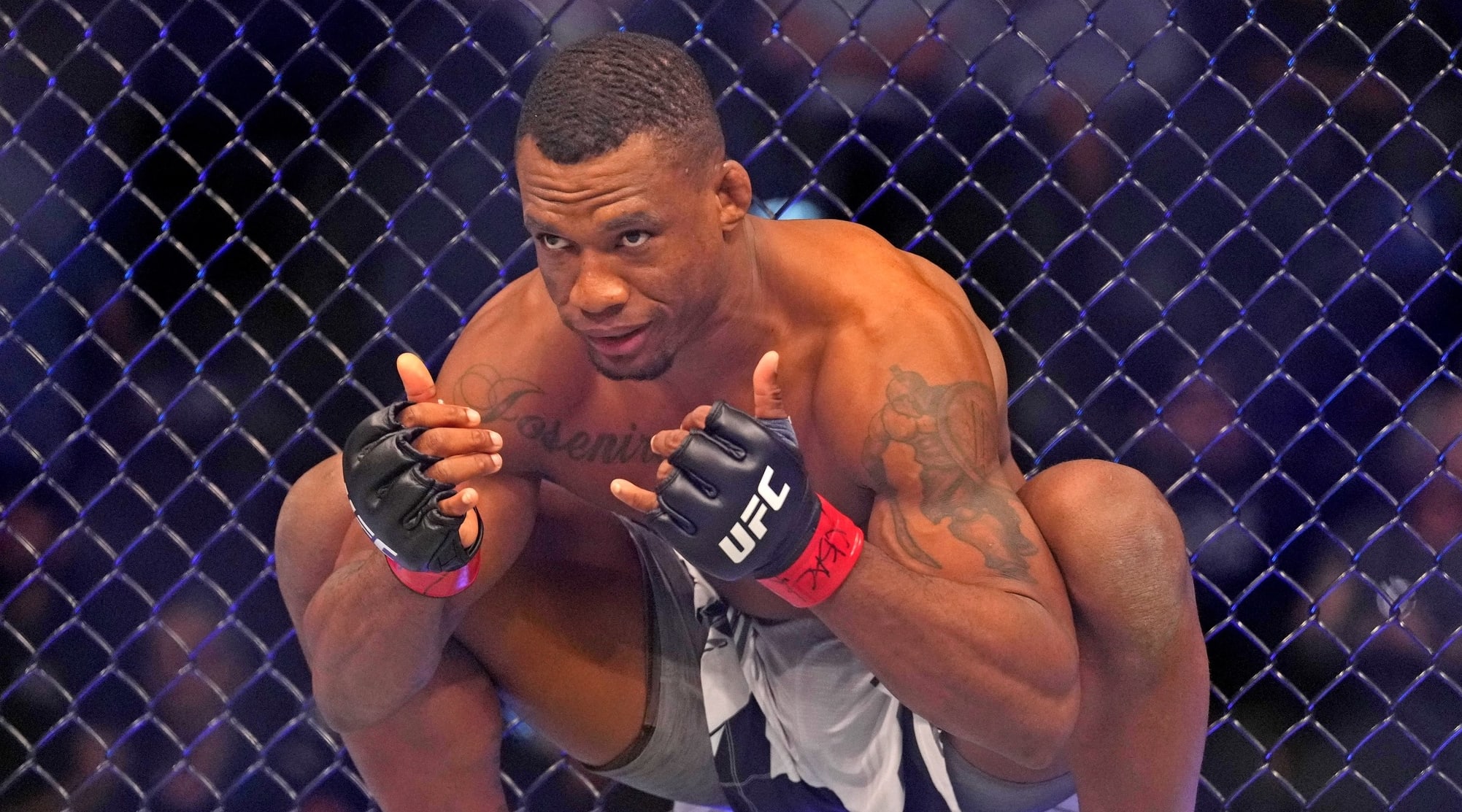The purpose of this content piece is to enlighten the reader by making them more aware of what we subconsciously are thinking about when it comes to analyzing MMA bouts. This is my no-nonsense approach to betting, and I am not saying it's the "right" or "wrong" way to do it, but these principles have helped me tremendously. Let's discuss the three principles I apply with consistency!
1. Trust your judgment
Recently, I put out this tweet:
Want to know an effective way to be a contrarian on a sports take?
Do your own homework and form an opinion with no interference from an outside view.
Too often, we are afraid to go against what the majority thinks, but our ability to trust our own judgement makes us unique.
— AJ Schullo (@AJ_Schullo) February 9, 2021
It is prominent and advantageous, yet we don't always practice this with persistence. Often people echo the same sentiments when talking about sports takes, or if they have a contrarian take, they will have a contrarian take without any conviction (people can see right through this, by the way). This is because we can be afraid of being "wrong" and of the "unknown" (whether we want to admit it or not). By chance, we may echo many points as our peers if we do our research with no outside interference, but we are also much more likely to have a contrarian yet sufficient sports take.
What's more impressive? Have a contrarian take that you formed on your own with research and analysis so you can be in a position to be correct when most aren't OR have an accurate take; however, it is the same as what the majority is thinking, so your ability to be unique is significantly suppressed long term? The masses are more likely to recall the individual that had a unique take backed up with compelling evidence. Not the individual who is banging the same drum as everybody else because they can't form their own unique opinion.
I have been on both sides of the equation, but I am pleased to be developing my organic analysis on a week-to-week basis for the past couple of years or so. How do I stay focused? Tune out EVERYTHING during fight week UNTIL my research and analysis are completed. My bets are decided and mostly executed (pending props or late notice fights) at the beginning of fight week, so I am putting myself in a position not to be swayed by any other opinion. I love to hear everybody's opinion on fights, but I also am selective when I want to listen to it.
We each possess a unique perspective, so why not use it to our fullest potential?
2. Don't get married to one outcome
A mistake I often would make in the past would be to act as though a fight would play out only one way. I am not referring to a specific fighter winning, but how the fight will play out more precisely. It's very convenient to assume a fighter who has been winning several consecutive contests in a row via first-round finish will do so in their very next fight. Still, if that particular fighter is facing a fighter who has historically been very tough to finish, how likely is that outcome (i.e., Deiveson Figueiredo vs. Brandon Moreno, Khaos Williams vs. Michel Pereira, Joaquin Buckley vs. Alessio Di Chirico)? I am not saying it can't happen, but this is a game of percentages, not exclusivity when it comes to handicapping fights.
Setting percentages may seem like an eye roll to some (I used to be one of these people) since these fights most likely play out one time (unless there's a rematch, trilogy, etc.). However, setting percentages allows us to be more open-minded and realize that there are numerous different ways an Octagon fight can play out. If we get married to one outcome of how a fight will play, we may succumb to egotism if right and disappointment if wrong (two things I want no part of).
When I do my betting write-ups, I acknowledge how the money line bet could lose by assigning it a percentage. There is no such thing as a lock or a guarantee in this game (after all, it is called betting), so why don't we acknowledge several different outcomes?
3. Standing knockouts do not deter me from making a bet
We almost always overestimate a fighter's chances of winning by knockout. Whether we want to admit it or not, we are biased towards knockouts in the sport of MMA. They can be flashy and unexpected, and as a result, we can let our emotions get in the way of our judgment. I love knockouts just as much as the next party guest, but when it comes to analyzing fights, I often ask myself, "who do I favor to win if a standing TKO/KO finish does NOT materialize." This question forces me to dig deeper into the matchup and avoid laziness at all costs.
There have been many matchups (i.e., Cannonier vs. Whittaker, McGregor vs. Poirier 2, Rountree vs. Prachnio, Nam vs. Schnell) where due to narrative, the knockout finish seemed so likely for the fighters highlighted in bold before the fight. When each of these fighters could not find the TKO/KO to finish their respective fights, they all lost. Why? Their finishing threat is far higher than their consistent round-winning equity against opposition with superior cardio and pacing.
There are plenty of times where the TKO/KO seems very likely before the fight then comes to fruition but recognize that there are plenty of times when it does not happen to acknowledge other paths to victory for fighters when doing analysis.
I've cashed many bets due to the inflated TKO/KO threat of one fighter (i.e., Usman vs. Woodley, Pereira vs. Williams, Poirier vs. McGregor 2, Whittaker vs. Cannonier, Grasso vs. Barber, Volkov vs. Harris, Adesanya vs. Costa) all of which are third party tracked and verified (betmma.tips/AnthonyS364). I usually favor the more technical fighter with superior round-winning abilities (i.e., fighting at a high pace, superior wrestling, good variety, etc.) over finishing threats, as I tend to think that prevails long-term.
If you're looking for additional tips and a description of my specific process, I recently broke it down over on my YouTube Channel:
